Have you ever felt the urge to disconnect from the world and journey somewhere utterly unique—where mystery meets magic, and silence speaks louder than words? If so, Easter Island travel might be calling your name. Easter Island, or Rapa Nui, perched alone in the vast Pacific, is a remote Chilean territory that carries more than just the weight of stone statues—it holds the soul of a forgotten civilization.
When you land on Easter Island, you’re not just stepping off a plane. You’re stepping into an open-air museum surrounded by sacred landscapes and age-old legends. It’s not just a vacation—it’s a deep dive into time, culture, and something bigger than yourself.
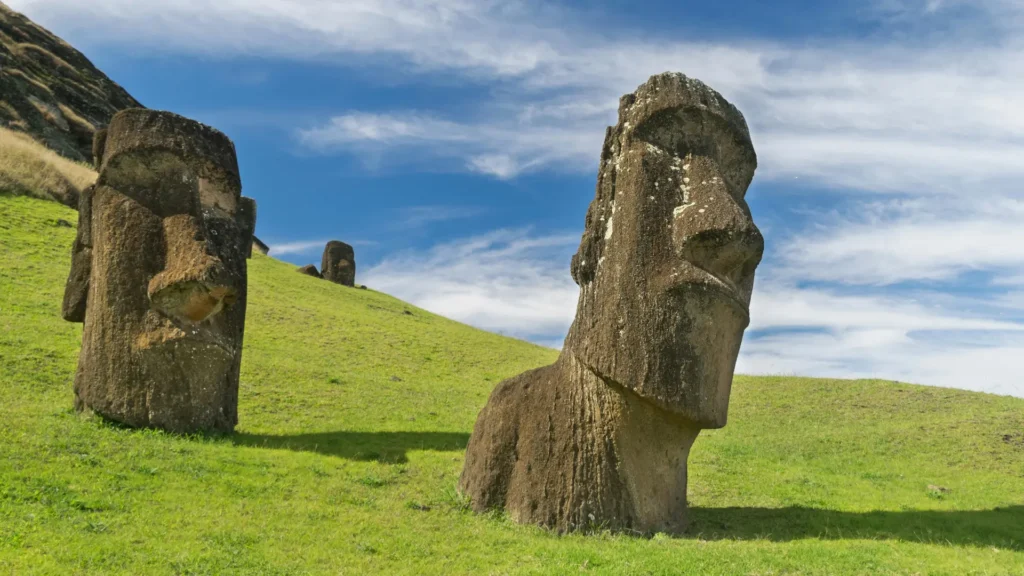
Table of Contents
Why Travel to Easter Island?
Traveling to Easter Island is unlike any journey you’ve taken before. Far from tourist traps and crowded cities, this island offers you pure authenticity.
- Total isolation: Over 2,000 miles from the nearest major landmass, you’re literally in the middle of the Pacific.
- Moai statues: Towering stone figures carved by an ancient civilization that still guard the island’s coastlines and hills.
- Cultural fusion: A rare blend of Polynesian heritage with Chilean traditions.
- UNESCO recognition: The entire island is a protected World Heritage Site.
- A journey back in time: No filters, no noise, just untouched beauty and stories carved in stone.
Whether you’re seeking adventure, a spiritual reset, or a deeper understanding of human resilience, Easter Island delivers something unforgettable.
Best Time to Visit Easter Island
Knowing when to go can make all the difference. Easter Island offers a subtropical climate, which means warm temperatures year-round—but with some variation in rainfall and wind.
Monthly Weather Overview
| Month | Avg Temp (°C) | Rainfall (mm) | Travel Insight |
|---|---|---|---|
| January | 23 | 100 | Ideal for festivals and beach days |
| April | 22 | 140 | Great balance of sun and calm |
| July | 18 | 130 | Quiet season, cooler temperatures |
| October | 20 | 110 | Perfect for exploring Moai sites |
Quick Tips:
- High Season: January–March (Tapati Festival time)
- Low Season: June–August (lower prices, cooler air)
- Sweet Spot: October or April (mild, fewer crowds)
How to Get to Easter Island
Getting to this mystical place requires a little effort—but it’s well worth the journey.
Flights
- Primary Route: Daily flights from Santiago, Chile (LATAM Airlines)
- Duration: ~5.5 hours
- Pro Tip: Book early, especially if you’re visiting during Tapati in February
Entry Requirements
- Valid passport (at least 6 months from return)
- Return ticket and proof of accommodation
- Entry Form (Formulario Único de Ingreso) required online
Make sure you pack essentials in your carry-on, since flight delays and baggage mishandling can happen occasionally on remote routes.
Top Things to Do on Easter Island
There’s no shortage of awe-inspiring experiences here. Whether you’re an adventurer, history buff, or a peace-seeker, Rapa Nui offers something that speaks to your soul.
Explore the Moai Statues
These stone giants aren’t just relics—they’re storytellers from the past.
Where to Go:
- Ahu Tongariki: The iconic row of 15 Moai at sunrise is a must-see.
- Rano Raraku: The volcanic quarry where the Moai were carved.
- Ahu Akivi: Rare Moai that face the ocean rather than inland.
Moai Site Highlights
| Site | Moai Count | Unique Feature |
|---|---|---|
| Ahu Tongariki | 15 | Largest restored platform |
| Rano Raraku | 397 | Half-carved Moai still in rock |
| Ahu Akivi | 7 | Aligns with equinoxes, faces ocean |
Hike to Rano Kau and Orongo
Rano Kau is a massive volcanic crater with a lake inside, and Orongo is a ceremonial village perched on its rim.
- Panoramic views of cliffs and ocean
- Learn about the Birdman Cult—a spiritual and political tradition
Relax at Anakena Beach
Not all of Rapa Nui is about history. When you’re ready to chill:
- Soft white coral sands
- Moai statues near the shore
- Warm water perfect for a swim
Stargazing
Thanks to zero light pollution, the stars here will blow your mind.
- Best spots: Ahu Akivi, Hanga Roa outskirts
- Book a local astrological tour for Polynesian sky myths
Where to Stay on Easter Island
Easter Island offers a wide range of accommodations—whether you’re going eco, luxurious, or budget.
Accommodation Comparison
| Type | Price Range (USD) | Amenities | Example |
|---|---|---|---|
| Eco-lodge | $300–600/night | Guided tours, full board, eco-luxury | Explora Rapa Nui |
| Mid-Range | $100–200/night | Private rooms, breakfast included | Hotel Taha Tai |
| Budget | $40–80/night | Shared kitchen, dorm or private | Vaianny Guesthouse |
Food and Cuisine on Easter Island
Food here blends the flavors of the Pacific and South America in delicious ways.
Must-Try Dishes:
- Tuna empanadas: Fresh, crispy, and addictive
- Ceviche: Raw fish marinated in lime and spices
- Umu Rapa Nui: Traditional earth oven feast
- Po’e: Banana and pumpkin bread pudding
Best Places to Eat:
- Te Moana: Oceanfront dining
- Haka Honu: Trendy, casual, and delicious
- Tía Berta: Authentic and affordable local fare
Culture and Festivals in Rapa Nui
What’s a trip to Easter Island without understanding the spirit of its people?
Tapati Rapa Nui Festival
Held every February, Tapati is the ultimate cultural immersion:
- Canoe races
- Traditional body painting
- Singing, dancing, and ancestral storytelling
- Crowning of the festival queen
Other Cultural Experiences:
- Watch traditional Hoko (war dances)
- Visit artisan shops with handmade wood carvings
- Explore petroglyphs and spiritual caves
Practical Travel Tips for Easter Island
Make your trip smoother by planning smartly.
What to Pack:
- Hiking boots or sturdy shoes
- Reef-safe sunscreen and insect repellent
- Light jacket (cool evenings)
- Portable power bank
Getting Around:
- Car rental is the best option for freedom
- Scooters and bikes for short distances
- No public transport—use taxis or guided tours
Money Matters:
- Currency: Chilean Peso (CLP)
- Limited ATMs—bring cash
- Credit cards accepted at major places only
5-Day Easter Island Itinerary
Here’s a well-paced itinerary to help you explore everything without rushing.
Day-by-Day Breakdown:
Day 1: Arrival + Hanga Roa
- Stroll town, visit the Rapa Nui Museum
- Dine at Te Moana
Day 2: South & East Coast Tour
- Rano Raraku + Ahu Tongariki
- Picnic lunch by the coast
- Sunset at Tahai
Day 3: Volcano Hike
- Morning hike to Rano Kau
- Explore Orongo village
- Catch a traditional dance show
Day 4: Beach + Stargazing
- Morning at Anakena Beach
- Horseback ride to lesser-known sites
- Evening star tour
Day 5: Sunrise + Departure
- Sunrise at Ahu Tongariki
- Souvenir shopping
- Return flight to Santiago
Responsible Tourism on Easter Island
Being a mindful visitor makes a lasting impact on Rapa Nui.
- Stay on trails: Protect fragile archaeological areas.
- Don’t touch the Moai: It’s illegal—and disrespectful.
- Buy local: Support native artists and businesses.
- Reduce waste: Reusable bottles and bags are a must.
By respecting the land and people, you help preserve this sacred island for generations to come.
Conclusion:
Easter Island doesn’t just offer a break from the world—it offers a bridge to something more meaningful. You’ll walk among sacred giants, listen to waves whisper ancient stories, and feel time slow down with every step. If you’re seeking a journey that leaves an imprint on your soul, Easter Island is the destination you didn’t know you needed.
FAQ : about Easter Island Travel
Is Easter Island safe to visit?
Yes. It’s peaceful, with low crime rates. Solo travel is very doable.
How many days should I spend on the island?
4 to 5 days give you enough time to see major attractions without feeling rushed.
Can I visit the Moai without a guide?
Yes, though a guide provides richer context. Some areas require accompaniment.
Do people speak English on Easter Island?
Spanish is primary, but English is commonly spoken in hotels, restaurants, and tour services.
Is Easter Island kid-friendly?
Absolutely. Beaches, outdoor adventures, and cultural shows appeal to all ages.


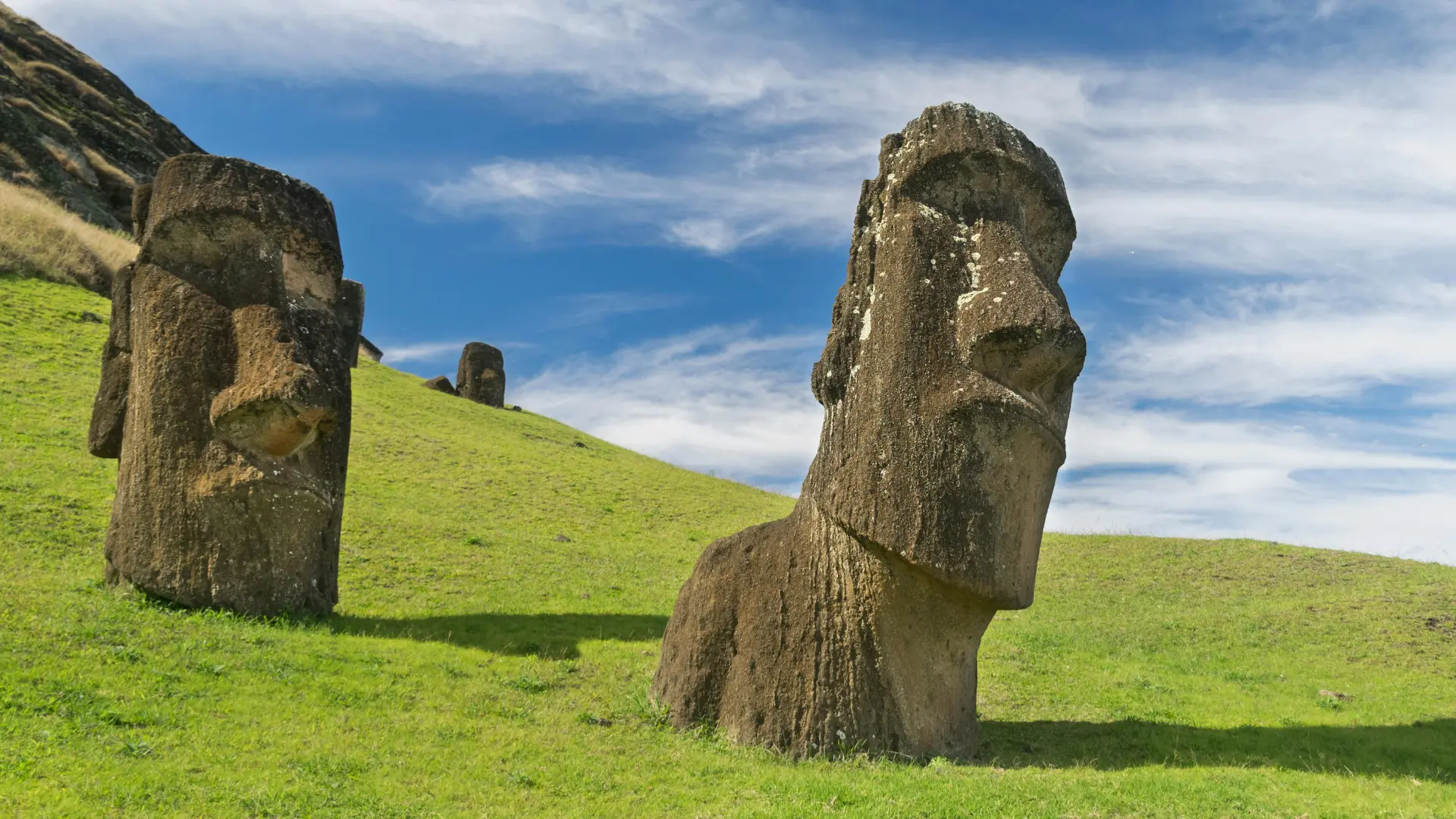

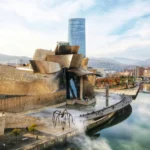

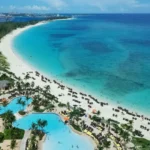
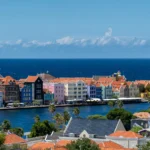
Leave a Reply